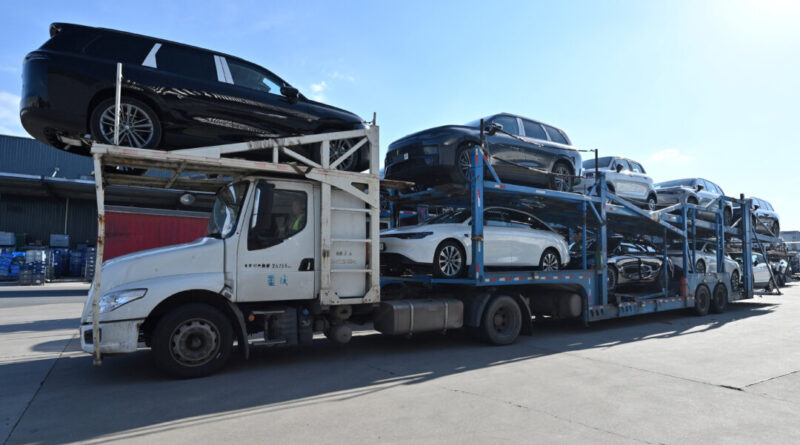EU to implement tariffs of up to 45% on electric vehicles manufactured in China
The new duties will take effect on Oct. 31 and will remain in place for the next five years.
The European Union (EU) announced on Oct. 29 that it is ready to collect extra customs duties on electric vehicles (EVs) made in China after months-long negotiations with Beijing failed to address the issue identified by the bloc’s investigation.
Starting from Oct. 31, the new duties of up to 35 percent—on top of the standard 10 percent—will come into force. These definitive duties will remain in place for the next five years.
Despite the introduction of the definitive tariffs, Olof Gill, the commission’s trade spokesperson, said the negotiations between Brussels and Beijing will continue.
“Any such solution would have to be effective in addressing the problem identified by the investigation, as well as World Trade Organization(WTO)-compatible,” Gill told reporters on Oct. 29.
Chinese EV giant BYD will incur a customs duty of 17 percent, while Geely, owner of Volvo and Polestar, will see a slightly higher tariff of 18.8 percent.
SAIC—the Chinese state-owned company that acquired Britain’s MG, one of Europe’s top-selling EVs—will face the steepest rate of 35.3 percent.
In contrast, Tesla, the American EV manufacturer with a gigafactory in Shanghai, will be subject to the lowest duty of 7.8 percent.
Other Chinese EV makers deemed cooperative by the commission will face tariffs of 20.7 percent, while those considered non-cooperative will be hit with the steepest 35.3 percent duties.
By imposing these tariffs, the EU risks more retaliatory measures from Beijing. Yet analysts suggest that the tariffs could deliver a significant blow to the Chinese regime.
“Not only does this move threaten the competitive edge of Chinese EVs in Europe, but it also sends a clear signal: China’s strategy of leveraging state subsidies and exports to fuel its EV industry may be running out of steam,” David Huang, a U.S.-based researcher focusing on China’s trade policy, told The Epoch Times ahead of the EU’s announcement.
However, the implications of this move may extend beyond trade.
“Most of the electricity used to charge these EVs relies on coal-fired power generation and hydropower generation [in China], which are actually more polluting than gasoline,” Huang said, pointing out that Beijing “just employs the ‘new energy’ narrative as a means to mislead the international community.”





